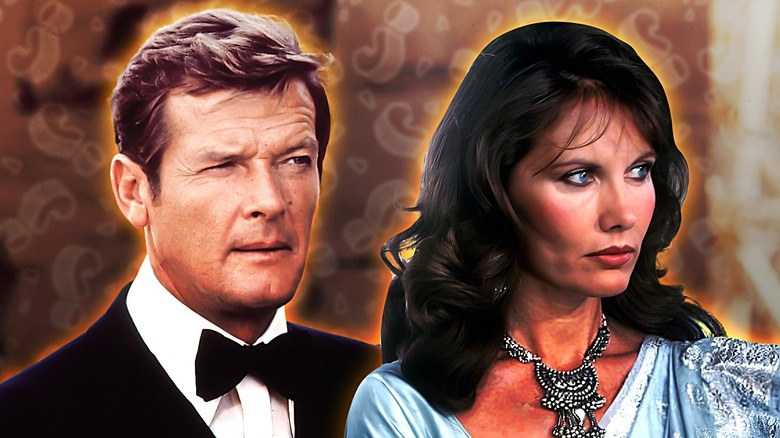What Does Octopussy Actually Mean?
The names of "James Bond" movies range from punchy one-word titles like "Spectre" to apparent word salads like "Quantum of Solace," but they're never meaningless. Dig deeper into each and every title, and they contain a reference to the agent's current mission, antagonist, or overall life situation.
The same applies to one of the two "James Bond" films that came out in 1983. Though "Octopussy" may seem like one of the more nonsensical titles in the series, it actually refers to the film's female lead — a wealthy and influential jewel smuggler who's known only as Octopussy (Maud Adams). As it turns out, the vaguely dirty-sounding name is actually a childhood nickname she got from her marine biologist father (Lew Hooper). In adulthood, she decided to adapt the pet name as a full-on professional moniker — which turned out to be a fitting choice, since her criminal gang is modeled after what she implies to be an old in-universe spiritual group known as the Octopus Cult.
Of course, there's also another Octopussy in the movie. The leader of the Octopus Cult shares the name with her father's deadly blue-ringed octopus pet, which she keeps at her headquarters and plays a crucial role during a fight scene between Bond (Roger Moore) and Kamal Khan's (Louis Jourdan) henchmen. Oddly enough, this Octopussy is far closer to Ian Fleming's original version.
Ian Fleming's original story is very different from the movie
There are many questionable things we ignore in "James Bond" films. Amidst all the casual sexism, racism, stereotypes, and the way many incarnations of 007 are essentially walking collections of red flags from the modern standpoint, it can be easy to miss some of the most obviously glaring questions about the franchise — like, say, what kind of father would call their daughter Octopussy, and who in their right mind would decide to go by that name in their professional life?
A character that was given the name as an attempt to keep at least some details from the source material in the movie, it turns out. The name is actually a holdover from Ian Fleming's James Bond short story collection "Octopussy and The Living Daylights," in which the villain protagonist Major Dexter Smythe — the human Octopussy's dead father in the movie — befriends an octopus in the wild. He names it "Pussy," and ends up voluntarily feeding himself to it after his dastardly plans go awry. In the grand scheme of things, this means that the short story "Octopussy" is technically a prequel of sorts to the movie. Meanwhile, the fake Fabergé egg plot in the movie has similarities to another short story in the collection, "The Property of a Lady," which features a minor literary Bond villain, KGB double agent Maria Freudenstein.
"Octopussy" isn't one of the best "Bond" movies by any stretch of imagination, thanks to its sheer cheesiness and literal circus antics. Still, at least the story behind its titular character's name is somewhat more nuanced than, say, that of "Goldfinger's" Pussy Galore (Honor Blackman).

